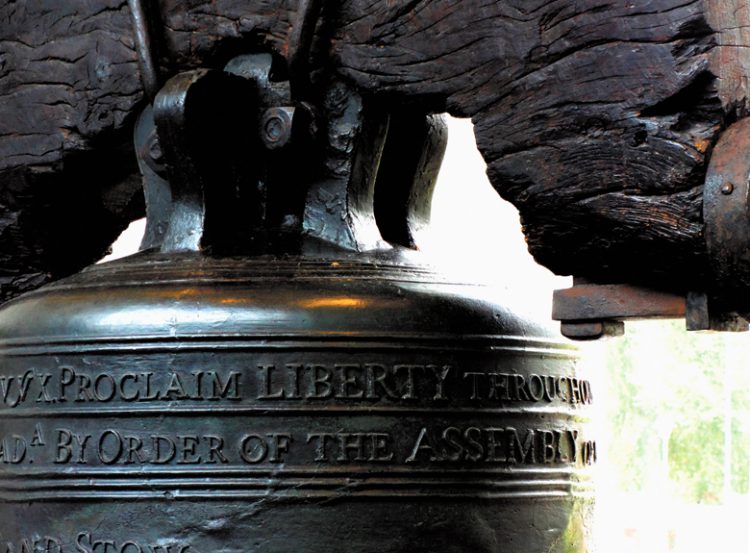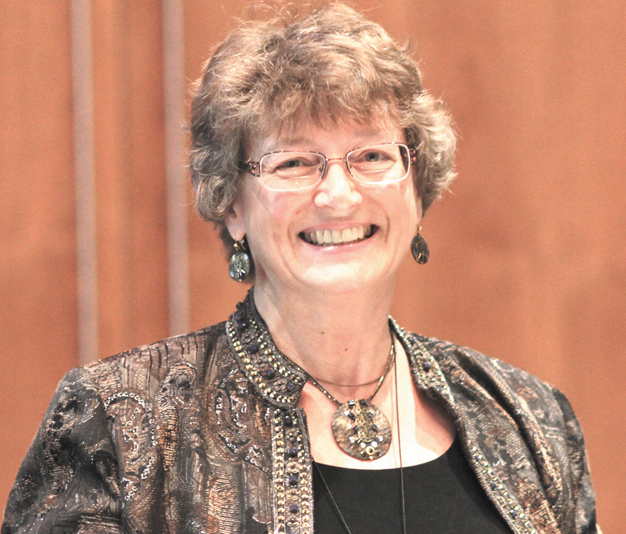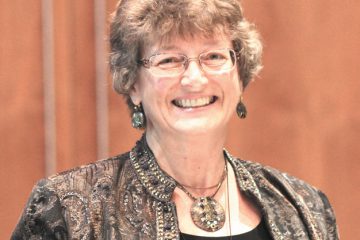A heritage of liberty

Our Dual Heritage Series
Jewish Family Education with Candace R. Kwiatek, The Dayton Jewish Observer
“The year was 2081, and everybody was finally equal. They weren’t only equal before God and the law. They were equal every which way,” begins Kurt Vonnegut’s short story Harrison Bergeron.
Supported by ever-expanding amendments to the national constitution, agents of the national Handicapper General ensured that nobody could think too deeply or differ in looks, intelligence, or abilities, stripping the people of their freedom, individuality, and ability to reason.
Vonnegut’s totalitarian theme is mirrored in the doublethink motto of The Party in George Orwell’s dystopian novel 1984: “War is peace/Freedom is slavery/Ignorance is strength.”
When people focus on a common but fictitious enemy, they’re less likely to notice problems in their own society, notes psychologist and writer Natalie Frank in her exploration of governmental mind control in 1984.
By defining what is good, acceptable, or desirable as “the collective will of the society” and freeing the individual from decision-making and responsibility, the government subtly coerces subjugation.
Then, sabotage the individual’s ability to learn and think rationally and citizens will ultimately accept and believe anything, cementing the government’s power.
Such totalitarianism is evident throughout history and across the globe, from centralized rule during the Qin and Mauryan dynastic eras of the Chinese and Indians to popular rule under Stalinism, Nazism, and modern Islamism.
Sadly, many of today’s increasingly secular Western societies have begun to embrace elements of totalitarianism as well. As they lose touch with their biblical roots, these nations are also surrendering a foundational value of Western civilization: liberty.
Well-versed in the Bible, America’s founders certainly understood the notion of liberty. Recognizing the connection between Exodus and Sinai, they saw liberty as the individual exercise of free will and freedom from coercion, but constrained by virtue, explains history professor Bradley Birzer.
In a memorable analogy, John Adams captured the same sentiment, “Liberty can no more exist without virtue and independence than the body can live and move without a soul.”

Chafing under familiar but ever more oppressive English rule, the American colonies broke away from the British Empire in the pursuit of liberty.
This very act is implied by the First Commandment, “I am the Lord your God who brought you out of the land of Egypt, out of the house of bondage,” according to Daily Wire host Ben Shapiro in a speech at Liberty University.
It says, according to Shapiro, “Remove yourself from the arbitrary bondage of the state and place yourself under a higher set of commandments.”
The early architects of the nation attempted to secure liberty by avoiding a central government altogether, setting up a loose confederation of states not unlike that of the ancient Israelites under Joshua and the Judges.
When chaos resulted, the architects designed America as a constitutional republic in which the people and their elected representatives would hold the power.
Even so, America’s founders recognized government’s proclivity for expansion and control and worried about its threat to individual liberty.
A modern adage by author and talk show host Dennis Prager echoes their concern: “The bigger the government, the smaller the citizen.”
To prevent tyranny and preserve liberty, the framers of the Constitution therefore limited the enumerated powers of government, delegated all other power to the states or individuals, and added a Bill of Rights.
“Our liberty can never be safe but in the hands of the people themselves,” Thomas Jefferson concluded.
Liberty also implies the non-coerced consent of the governed, a notion enshrined in the Declaration of Independence:
“We hold these truths to be self-evident, that all men…are endowed by their Creator with certain unalienable Rights… That to secure these rights, Governments are instituted among Men, deriving their just powers from the consent of the governed.”
Is it any surprise that the Covenant at Sinai also required the consent of the people?
“And he (Moses) took the book of the Covenant, and read it in the hearing of the people; and they said: ‘All that the Eternal has spoken will we do, and obey.’”
Finally, America’s early builders understood that liberty relied heavily on moral self-rule.
“To suppose that any form of government will secure liberty or happiness without any virtue in the people,” James Madison commented, “is a chimerical idea.”
Exodus fails without Sinai. As Shapiro concludes, “Rights without virtues lead to chaos. Virtues without rights lead to tyranny. Only by balancing public rights with private virtues can we truly uphold freedom and pursue happiness.”
With its earliest roots in the Bible, America’s heritage of liberty embodies notions of freedom, the individual, and virtue.
Although it’s imperfectly applied, it’s an ideal toward which we strive. It must be safeguarded.
Princeton Prof. Robert George’s conclusions in the video Why We are Losing Liberty lead me to observe that liberty can be taken away, but it can also be given away out of sheer ignorance or lack of virtue. If we want to understand liberty, to see what we’re missing, we need only read the biblical accounts of Exodus and Sinai. If we want to get it back, we need only read America’s founding documents. All the liberty we ever wanted is there.
Literature to share
Raisins and Almonds: A Yiddish Lullaby by Susan Tarcov. Based on a beloved Yiddish lullaby, this imaginative tale is about Bella’s journey to discover “the little white goat with his store” that is under her bed at night. Its gentle message is to face your fears — even if they might include a “monster under the bed.” With its whimsical illustrations and wonderfully repetitive language — “You never know. Why don’t you come and see?” — this is an excellent read-aloud. An added feature is the QR code at the book’s end that allows you to view a performance of the original lullaby in Yiddish. Delightful!
Braided: A Journey of a Thousand Challahs by Beth Ricanati, M.D. As an internal medicine physician, Ricanati discovered that disease often arises when the body and spirit are disconnected, when women in particular unconsciously believe they don’t need to take care of themselves in order to take care of others. However, she discovered a unique prescription: a weekly time out for baking challah. Filled with anecdotes, personal reflections, and home and health benefits, this little gem also takes the reader step by step through the challah-making experience. Try it out using the quick to make, never-fail yeast challah recipe included.
To read the complete July 2019 Dayton Jewish Observer, click here.


